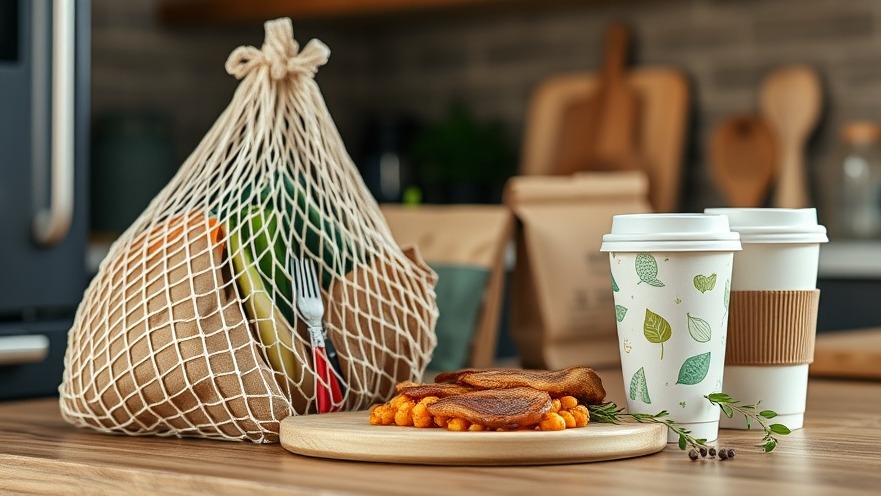
Making Eco-Friendly Choices in Your Kitchen
In a world increasingly burdened by soaring plastic waste, your kitchen often serves as a silent contributor to the crisis. Surprisingly, everyday meals can lead to tons of plastic waste filling our landfills and spilling into oceans. As a boutique hospitality professional, making your lodging establishments more sustainable can set you apart and appeal to the environmentally-conscious traveler.
Understanding the Crisis: Scaling Plastic Waste
The global plastic waste status is alarming, with predictions indicating we will surpass 1 billion tons by 2025. U.S. residents alone produced approximately 287 pounds of plastic waste per person last year, with a dismal recycling rate of just 5%—a statistic that all hospitality providers need to be aware of. This stark reality provides motivation for adopting sustainable methods right within our kitchens.
Simple Swaps to Reduce Plastic Waste
Now, let's delve into five easy kitchen swaps that will significantly reduce your plastic footprint while enhancing your eco-friendly hospitality offerings.
1. Compostable Plates: An Eco-Friendly Alternative to Plastic
Party food often gets served on handy plastic plates, but these single-use items harm the environment more than we realize. Instead, consider compostable bagasse plates made from sugarcane waste. They break down in weeks compared to decades for traditional plastic, offering an effortlessly sustainable option for your dining requirements.
2. Smart Storage Solutions for Less Food Waste
An astonishing 40% of food production ends up wasted every year. Reduce this number with strategic storage using clamshells and resealable bags that are compostable. A well-planned meal not only minimizes waste but also saves your hospitality operation money in the long run. Ornate your kitchens with clever storage solutions that ensure freshness for longer periods.
3. Compostable Straws: Sip Sustainably
While most enjoy sipping a cool drink through a straw, it's often easy to overlook what these straws become after they’re tossed. Switch to compostable straws made from plant materials, which break down in just 90-180 days versus the centuries needed for plastic counterparts. Offering guests an eco-conscious sipping option enhances your sustainable hospitality brand.
4. Toxin-Free Home and Natural Landscaping Approaches
As part of launching your eco-conscious lodging business, consider the broader environmental impact of toxin-free home and garden practices. From the cleaning products you use to the landscaping materials that adorn your property, opting for natural alternatives can speak volumes to your guests about your sustainability values.
5. Foster a Culture of Sustainability
An essential aspect of eco-friendly hospitality is cultivating a culture around zero-waste practices. Engage your guests through workshops on composting or eco-friendly gardening, creating shared experiences that amplify the impact of your sustainability efforts.
Count the Benefits of Going Green
Implementing sustainable kitchen swaps not only reduces plastic waste but also improves your brand image. Today's travelers are increasingly searching for eco-friendly lodging, and your proactive steps can make a significant difference in attracting this market.
Call to Action: Join the Green Movement!
As you strive to build an eco-conscious lodging business, embrace these kitchen swaps as your first step toward a zero-waste lifestyle. With each swap you make, you're not only minimizing plastic waste but also showcasing your commitment to the environment. Let your guests know how their choices can lead to meaningful impacts!
By taking these small yet vital actions, your establishment can offer an enhanced, sustainable experience that resonates with guests long after they check out. Together, we can turn the tide against plastic waste in our kitchens and beyond!
 Add Row
Add Row  Add
Add 




Write A Comment